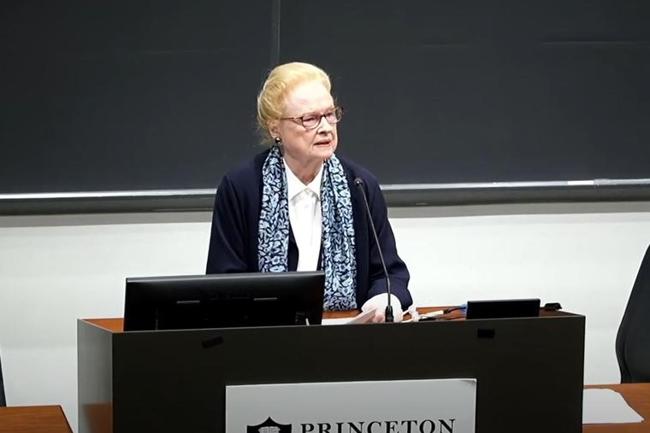Summary
COMMENTARY: Mary Ann Glendon, in a recent lecture, offered insights that can help us reflect on their value today.
Source: National Catholic Register

AI News Q&A (Free Content)
Q1: What are the current challenges facing the International Human-Rights Project as discussed by Mary Ann Glendon?
A1: Mary Ann Glendon highlights several challenges facing the International Human-Rights Project, including political polarization, cultural relativism, and the erosion of consensus on universal human rights. These challenges stem from differing national priorities and interpretations of human rights, which can undermine global cooperation and the effectiveness of international human rights laws.
Q2: How has Mary Ann Glendon's work influenced the field of international human rights?
A2: Mary Ann Glendon has significantly influenced international human rights through her academic work, particularly in the areas of bioethics and comparative constitutional law. As a former United States Ambassador to the Holy See, she has also played a role in diplomatic efforts to promote and protect human rights globally. Her work emphasizes the importance of grounding human rights in a universally accepted moral framework.
Q3: What are the implications of cultural relativism on the enforcement of international human rights standards?
A3: Cultural relativism poses a significant challenge to the enforcement of international human rights standards. It argues that human rights should be interpreted within the context of cultural norms and practices, potentially leading to variability in how rights are recognized and enforced globally. This can result in a lack of accountability and uniformity in human rights protection, as countries may prioritize cultural traditions over international agreements.
Q4: How do political dynamics affect the implementation of international human rights laws?
A4: Political dynamics, such as national interests and power struggles, can significantly affect the implementation of international human rights laws. Countries may selectively adhere to human rights standards based on political alliances and economic interests, leading to inconsistent enforcement. This geopolitical context can hinder global efforts to uphold human rights and protect vulnerable populations.
Q5: What role does the consensus on universal human rights play in the effectiveness of international laws?
A5: The consensus on universal human rights is critical for the effectiveness of international laws. A shared understanding and commitment to these rights facilitate cooperation and compliance among nations. Without consensus, it becomes challenging to hold countries accountable and ensure consistent protection of human rights, as differing interpretations and priorities can lead to fragmented enforcement efforts.
Q6: What strategies can be employed to strengthen the International Human-Rights Project in the face of current challenges?
A6: To strengthen the International Human-Rights Project, strategies could include fostering dialogue and collaboration among nations to build consensus on human rights definitions and priorities. Enhancing education and awareness about human rights and promoting the inclusion of diverse perspectives can also help bridge cultural and political divides. Additionally, strengthening international institutions and mechanisms for accountability can support more effective enforcement of human rights laws.
Q7: How can international cooperation be enhanced to overcome the challenges faced by the International Human-Rights Project?
A7: International cooperation can be enhanced by promoting multilateral dialogue and partnerships that prioritize human rights. Encouraging transparency and accountability among states and leveraging technology for better monitoring and reporting can also improve cooperation. Building coalitions across civil society, governments, and international organizations can create a unified front to address and overcome the challenges facing the International Human-Rights Project.
References:
- Mary Ann Glendon - Wikipedia: https://en.wikipedia.org/wiki/Mary_Ann_Glendon





